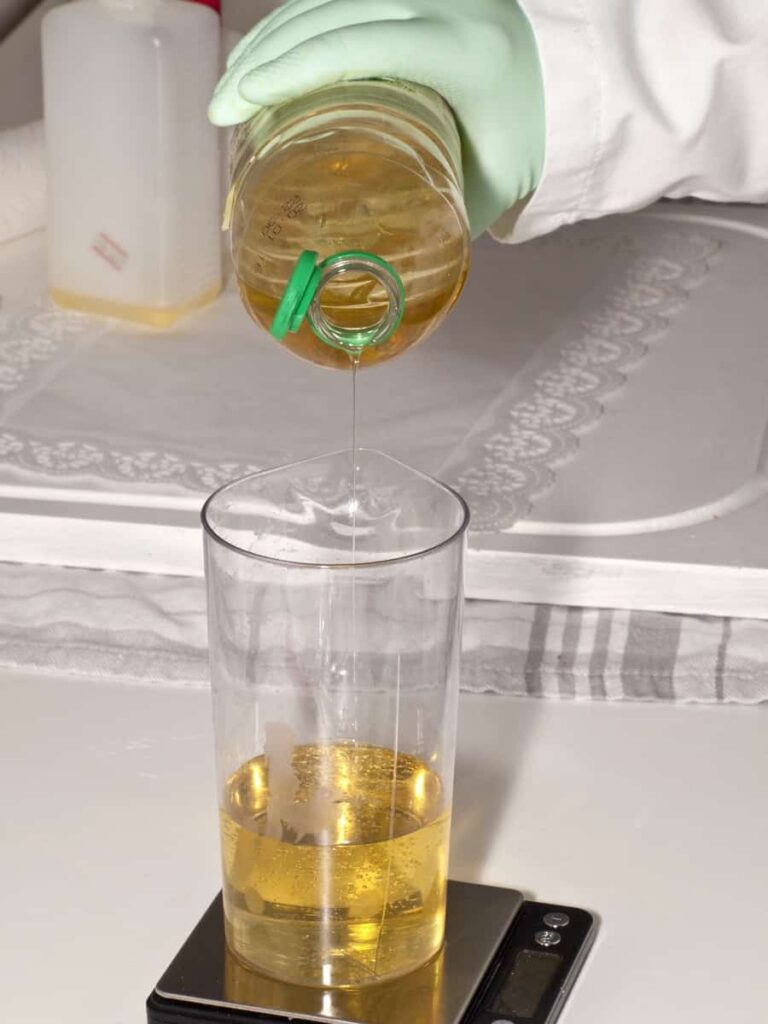The palm oil production business plan is a comprehensive guide that covers all aspects of starting a palm oil production business. This includes the feasibility study, market research, financial projections, and more. The palm oil production business plan is a valuable resource for entrepreneurs who want to enter the palm oil industry.
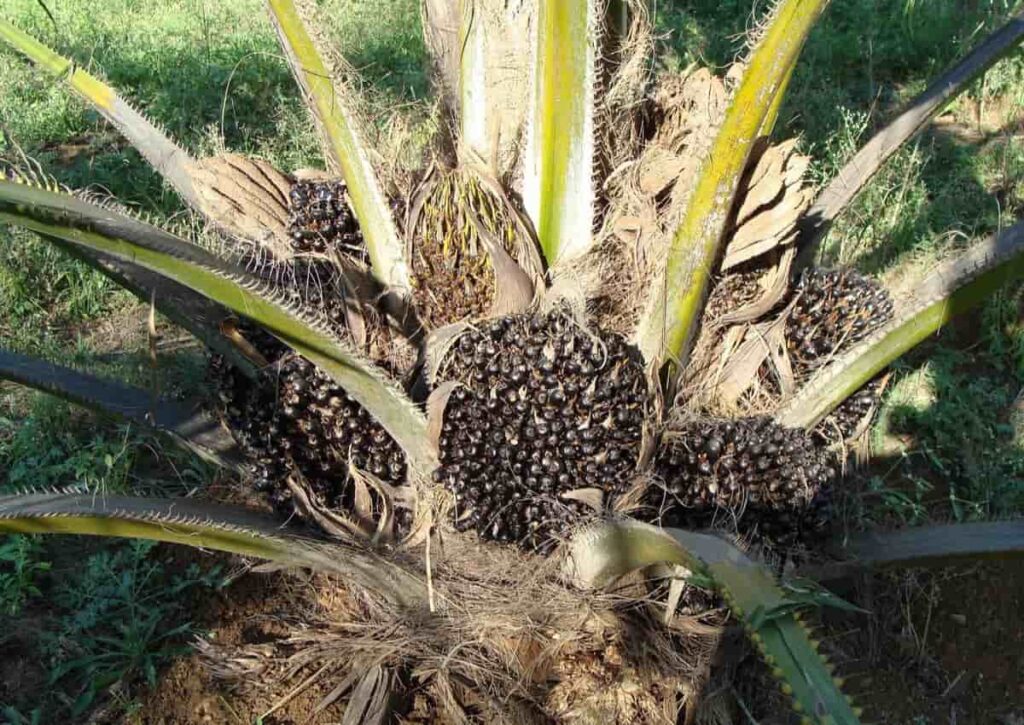
It provides important information on the market, competition, and strategies for success. This business plan will help you make informed decisions about starting a palm oil production business. It is essential reading for anyone considering this type of venture.
Palm oil production business plan
What is palm oil?
It is an edible vegetable oil derived from the fruit of the oil palm tree. It is the world’s most widely produced edible oil and is used in various food products, cosmetics, and biofuels. However, palm oil production is a complex and capital-intensive process requiring significant land, labor, and infrastructure investment. Therefore, a palm oil production business plan must consider these factors to succeed.
The first step in starting a palm oil production business is to acquire the necessary land and infrastructure. This can be done by leasing, purchasing existing plantations, or by developing new plantations. The next step is to hire the labor force to operate the plantation and process the palm fruit into crude palm oil (CPO). Finally, the CPO must be refined into finished products such as cooking oil, biodiesel, or other end uses.
In case you missed it: How to Start a Wholesale Oil Business In India
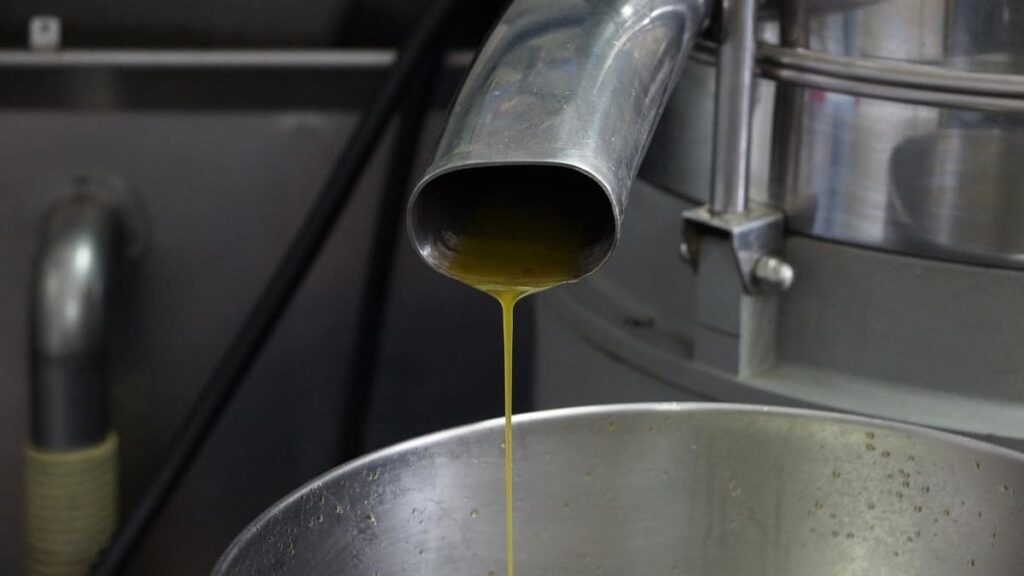
A successful palm oil production business plan will consider these costs and factor them into a comprehensive financial model. The model should include detailed assumptions about yield, operating costs, capital costs, selling prices, and other relevant factors. With this information, investors can make informed decisions about whether or not to proceed with a particular palm oil production project.
Need for Palm Oil
As the population continues to grow across the globe, so does the demand for food. To meet this demand, farmers are increasingly turning to palm oil as a source of vegetable oil. Palm oil is a type of edible (cooking) oil extracted from the fruit of the African oil palm tree. It is high in saturated fats and has several uses, including cooking, cosmetics, and biofuel. The demand for palm oil has grown significantly in recent years as it is seen as a more efficient and sustainable option than other vegetable oils.
It takes less land to produce palm oil than other oils, such as soybean or rapeseed oil, making it more environmentally friendly. In addition, palm oil can be produced with little or no water, making it ideal for countries that experience water shortages. However, palm oil production has come at a cost to the environment. Clearing rainforests for palm plantations has contributed to deforestation and climate change.
In case you missed it: Herbal Oil Project Report, Making Process
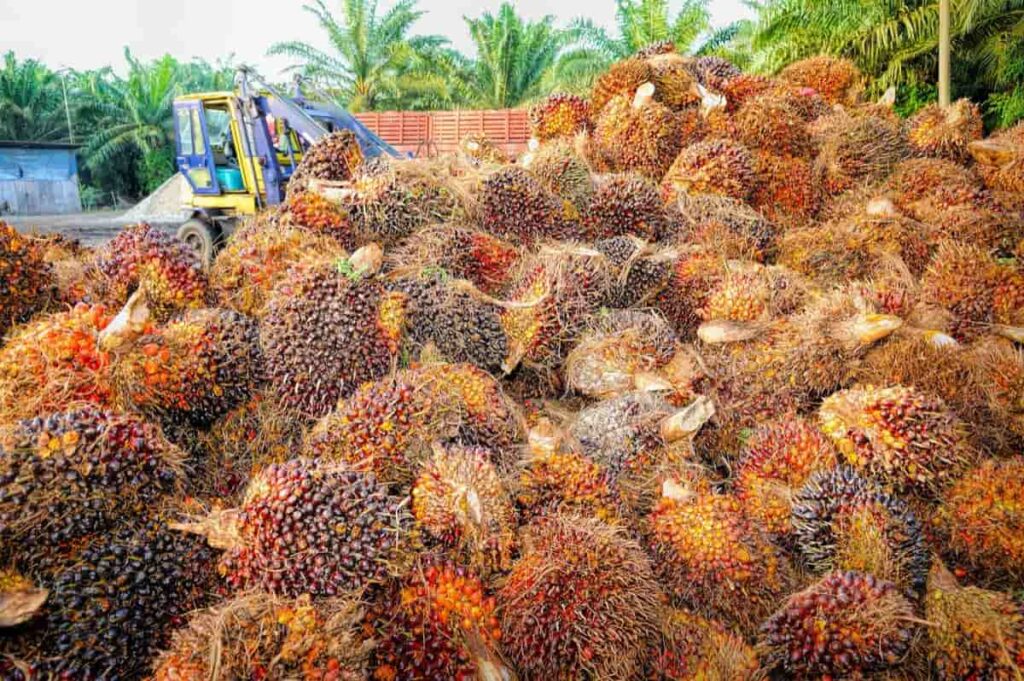
In addition, pesticides and fertilizers on these plantations can pollute rivers and groundwater. There are also concerns about the working conditions on some plantations, where workers may be exposed to hazardous chemicals or forced to work long hours for low wages. Despite these concerns, palm oil remains an essential part of the global economy and will likely continue to play a role in meeting the world’s growing demand for food.
Why start a palm oil production business?
There are many reasons to start a palm oil production business. Palm oil is versatile and healthy oil used in various products. It is also a sustainable source of income for smallholder farmers and can help improve rural communities’ livelihoods. Starting a palm oil business can be a viable and profitable venture for entrepreneurs looking to make a difference in the world.
Palm oil production can help create jobs, provide economic opportunities in rural areas, and contribute to developing more sustainable supply chains. In addition, palm oil businesses can promote best practices in palm oil production and sustainability, which can help protect this important natural resource.
Setting up a Palm Oil Plantation
A palm oil plantation is a large farm that produces palm oil. This palm oil is a vegetable oil extracted from palm trees’ fruits. It is used in cooking and also as a biofuel. To set up a palm oil plantation, you must acquire land, obtain financing, plant trees, and hire workers. The process can take several years and requires significant investment. But once operational, a palm oil plantation can be a profitable enterprise.
In case you missed it: Oregano Oil Project Report, Business Plan
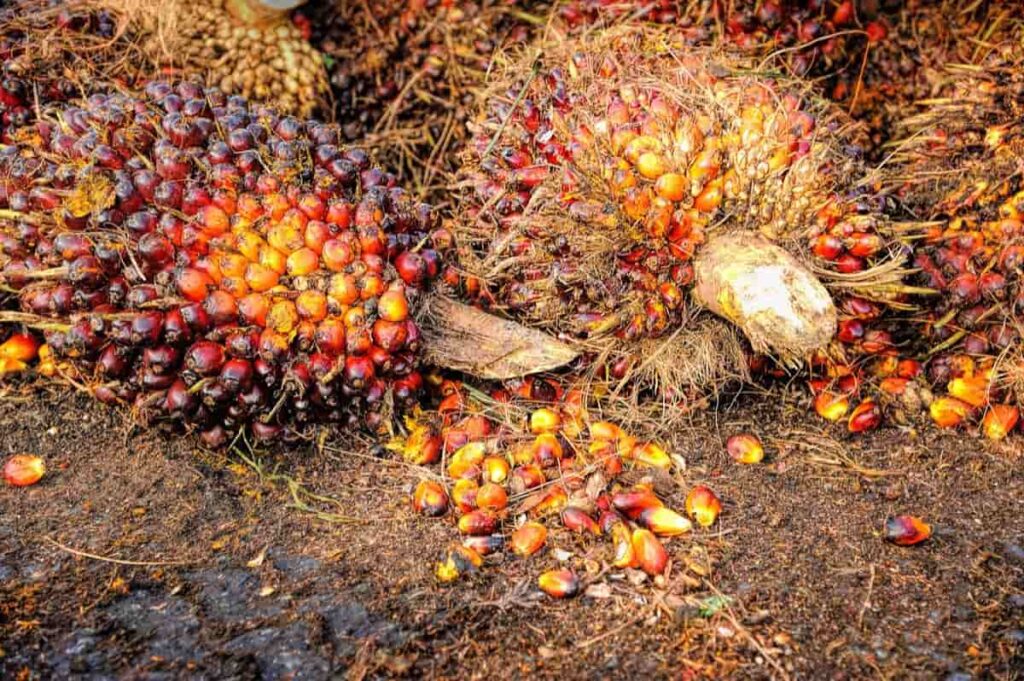
Process of palm oil production
The process of palm oil production is a long and complicated one. It begins with the harvesting of fruit from palm trees. The fruit is then transported to a mill, where it is crushed, and the oil is extracted. The extracted oil is then transported to a refinery and refined into palm oil. The refined palm oil is then transported to a fractionation plant and fractionated into various oil grades. The different grades of palm oil are then transported to buyers who use them for various purposes. Palm oil is used in different products, including cosmetics, soaps, detergents, and margarine.
Harvesting process
The harvesting process of palm oil production is a complex and labor-intensive operation. It involves using large machines to extract the oil from the palm fruits and a great deal of manual labor. The process begins with the collection of ripe palm fruits from the trees. These fruits are then transported to the mill, where they are crushed and pressurized to extract the oil.
After the palm oil has been extracted, it is refined and processed into various products. These products are then shipped to customers around the world. The entire process of palm oil production is quite complex and requires a great deal of planning and coordination.
How to start a palm oil production business
If you are looking to start a palm oil production business, there are a couple of things you need to know. First, palm oil is a type of vegetable oil derived from the fruit of the oil palm tree. It is used in various products, including food, cosmetics, and biodiesel fuel. The first and foremost thing you need to do when starting a palm oil production business is to create a business plan. This will help determine the costs and benefits of starting your own business.
You will also need to find a suitable location for your business. Living in an area with many palm trees will be easier than living without them. Once you have your business plan and location, you must purchase the necessary equipment. This includes an oil press, extraction machine, and refining machine. You will also need to buy palm fruits from farmers or suppliers. Once you have your equipment and raw materials, you can produce palm oil.
In case you missed it: Cedarwood Oil Project Report, Business Plan
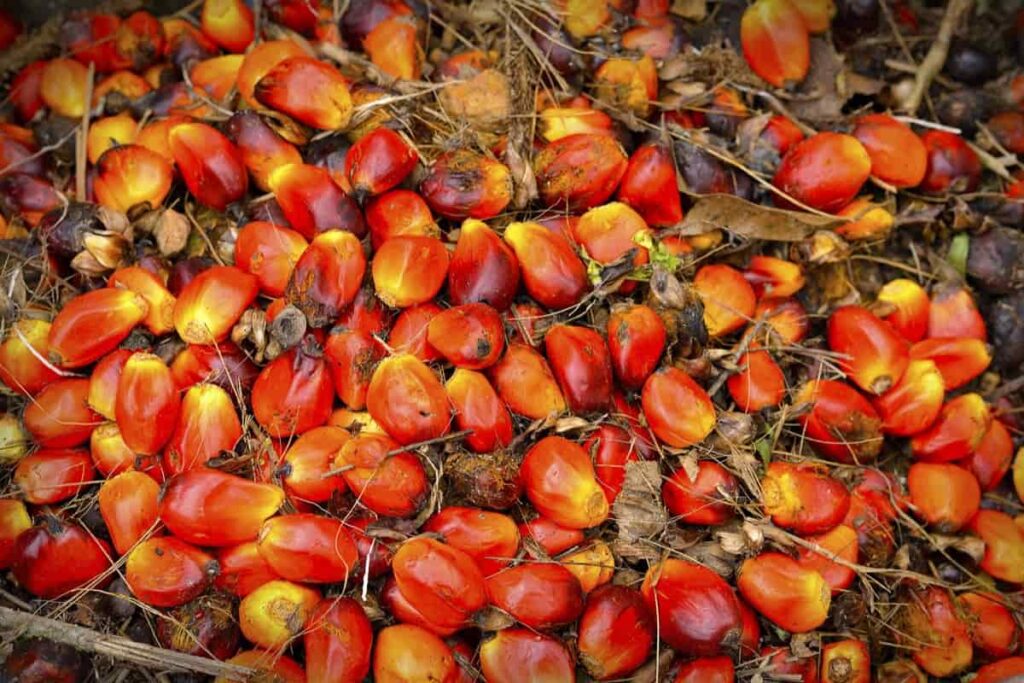
The fruit must first be harvested from the trees to produce palm oil. This is done by hand or with the use of machines. The next step is extracting the fruit oil using an extraction machine. After the oil has been extracted, it has to go through refining process before it can be used in products or sold as fuel.
Palm oil production business plan template
If you’re looking to start a palm oil production business, you’ll need a comprehensive business plan. Luckily, we’ve got a template that will help you get started. This palm oil production business plan template includes an executive summary, company overview, market analysis, financial projections, and more.
With this template, you can quickly and easily develop a professional business plan for your new venture. To start your palm oil production business plan, download the template and fill in the necessary information. Once you’re finished, you’ll have a professional document to help secure funding and get your business off the ground.
Marketing and Sales Strategy
The marketing and sales strategy for a palm oil production business plan should include a detailed analysis of the target market, the competition, and the company’s strengths and weaknesses. The plan should also include a sales forecast, a marketing budget, and a timeline for implementing the marketing and sales strategy.
Financial Plan
A well-written business plan for a palm oil production company should include a detailed financial plan. This financial plan should include a section on the company’s current financial situation and future income and expenses projections. The financial plan should start with a brief overview of the company’s current financial situation.
In case you missed it: Argan Oil Project Report, Business Plan
This overview should include the company’s revenue, expenses, and cash flow. It should also discuss the company’s existing debts and assets. Next, the financial plan should provide projections for the company’s future income and expenses. These projections should be based on realistic assumptions about the future palm oil market and its costs.
The projections should show how much money the company will likely make or lose over the next few years. Finally, the financial plan should include a discussion of the risks that could affect the company’s ability to meet its financial goals. These risks could include changes in palm oil prices, unexpected increases in production costs, or delays in getting new palm oil plantations up and running.
Conclusion
A palm oil production business can be a very lucrative venture. With the right business plan in place, you can reap the benefits of this highly profitable industry. However, it is essential to research and develop a solid plan before getting started. This will help you avoid potential pitfalls and ensure your business is booming.
- Pet-Tech Startups: Innovations for Animal Lovers
- Tech Repair Services: Meeting the Demand for Gadget Maintenance
- Maximizing Rewards: Smart Credit Card Habits for Cashback and Points
- Ultimate Guide to Making Money from Goat Milk Business
- How to Start an Agricultural Value Added Product Business
- Value-Added Business Ideas for Greenhouse: The Best Ways to Make Profits with Greenhouse Farming
- How to Make Profits with Organic Country Chicken: Best Strategies for Beginners
- 10 Value-added Business Ideas for Millets: Low-investment and Highly Profitable
- Why Cleaning Service Business Becoming More Profitable in Metro Cities in India
- 10 Best Businesses to Start in Ayodhya for Profits
- Top Drone Business Ideas in India: Unlocking Aerial Innovation & Opportunities
- Top 10 Service Businesses You Can Start with No Money
- Ultimate Guide to Starting a Home-Based Advertising Agency Business
- Starting a Nail Salon Near Your Location: Check List, Business Plan, Licensing, and Opening Instructions
- Construction Company Name Ideas: Guide to Create New Construction Company Names
- 8 Best Small Businesses to Start in Hyderabad: Low-Cost and Profitable
- 10 Best Small Businesses to Start in Massachusetts: Low-Cost and Profitable
- 10 Best Small Businesses to Start in Maryland: Low-Investment and Profitable
- 10 Best Small Businesses to Start in Delaware: Low-Investment and Profitable
- 10 Best Small Businesses to Start in Connecticut: Low-Investment and Profitable
- Top 10 Best Online Pet Business Ideas: Exploring Cats to Dogs
- 10 Best Small Businesses to Start in Colorado: Low-Investment and Profitable
- Top 10 Profitable Small Business Ideas in California: Low-Investment Tips
- From Little Rock to Fayetteville: Top 10 Profitable Small Business Ideas in Arkansas
- Top 10 Profitable Small Business Ideas in Alabama: Discover Opportunities in Alabama’s Growing Cities
- Top 10 Profitable Small Business Ideas in Arizona: Discover Opportunities in Arizona’s Growing Cities
- Golf Business Ideas: Exploring Golf Course Money Making Ideas
- Low Capital Profitable Small Farm Ideas: Farming Ideas to Make Money
- How to Write a Business Plan for Daycare: Exploring from Financial Projections to Risk Management
- Home Daycare License Requirements: Exploring State-wise In-home Daycare Requirements
- How Profitable is Day Care Business: How Much Does a Daycare Owner Make a Month or Year?
- How to Open a Daycare Center in Toronto, Canada: Business Plan, Licenses and Permits
- How to Start Meal Prep and Delivery Services: A Popular Business Idea
- How to Start a Milk Chilling Plant Business
- How to Start Coconut Shell Charcoal Business: Business Plan for Maximizing Profits
- 10 Value-Added Business Ideas for Fish Farmers: Low-Investment and Highly Profitable
